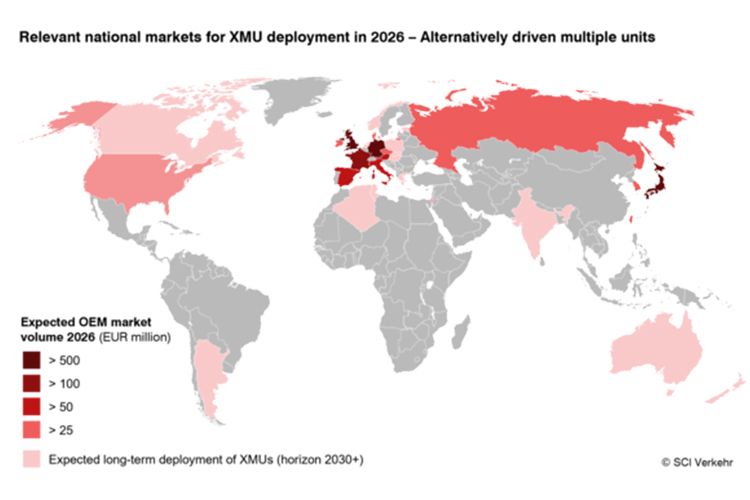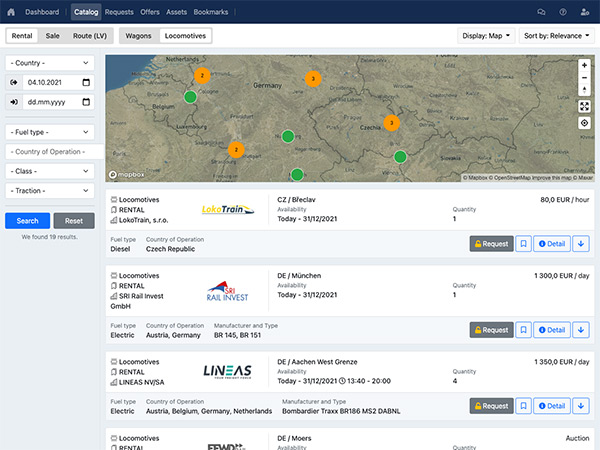In the latest MultiClient study, "Worldwide Market for Multiple Units," SCI Verkehr reports that in times of global crises, the market for multiple units in regional and suburban rail transport will be resilient despite numerous challenges. This underlines the robustness of the market in the coming years and offers scope for further opportunities. However, current global developments and the looming recession could affect the rolling stock industry.
According to SCI Verkehr, the global market for new vehicles in the multiple unit segment is expected to grow by around €5 billion by 2026 from its current level of around €11.2 billion. However, these numbers are subject to uncertainty and are also partly affected by high inflation and rising energy prices leading to higher material, resource, and labour costs. Increasingly restrictive fiscal policy, which is slowing down the overall economic outlook, is also a problem for the rolling stock industry and its supplier landscape.
Many regions are facing the problem of the need to modernize to replace ageing rolling stock and improve the quality of rail transport. Despite these factors, SCI believes that investment in rail will continue to be made even in economically difficult times with tight public budgets. Funding for contracts will be helped by the economic recovery packages resulting from the Covid-19 pandemic.
With approximately €6.4 billion, the European multiunit market accounted for more than half of the global market volume in the new market (OEM) business in 2021. Also due to inflation, the global growth rate is expected to be more than 9% per year until 2026, while the increase in the number of trains is more moderate at 6.1% per year. Europe also has the highest figures in terms of its existing fleet. With more than 27,000 multi-unit units in operation, the share is more than 50% compared to fleets in the rest of the world. Asia as the second most important market is responsible for the steady growth of electric multiple units.
In recent years, the importance of rail as an environmentally friendly mode of transport has also increasingly become the focus of political attention. As the electrification of the rail network is often still incomplete, alternative vehicle types are being sought to replace diesel trains in the medium term. According to SCI Verkehr's forecast, hydrogen fuel cell (HMU) or battery propulsion (BEMU), commonly referred to as XMU, will account for more than 15% of the total new vehicle market and almost 25% in 2030. In the medium to long term, diesel multiple units will thus be replaced by alternatively powered vehicles in all major markets (except highly electrified country networks such as Switzerland). For the former markets, the annual XMU market volume is expected to exceed €500 million in 2026. In the other markets, where concrete ambitions or orders for XMUs are known, the market volume is between €25 and €500 million per year.

